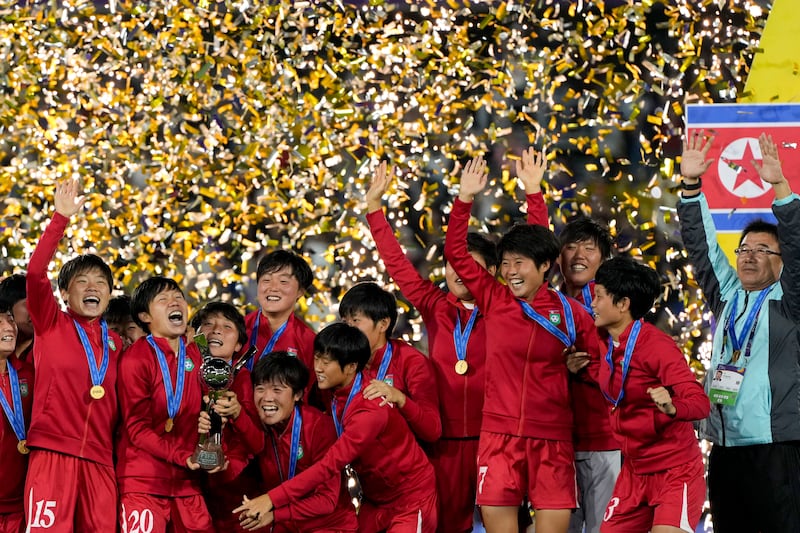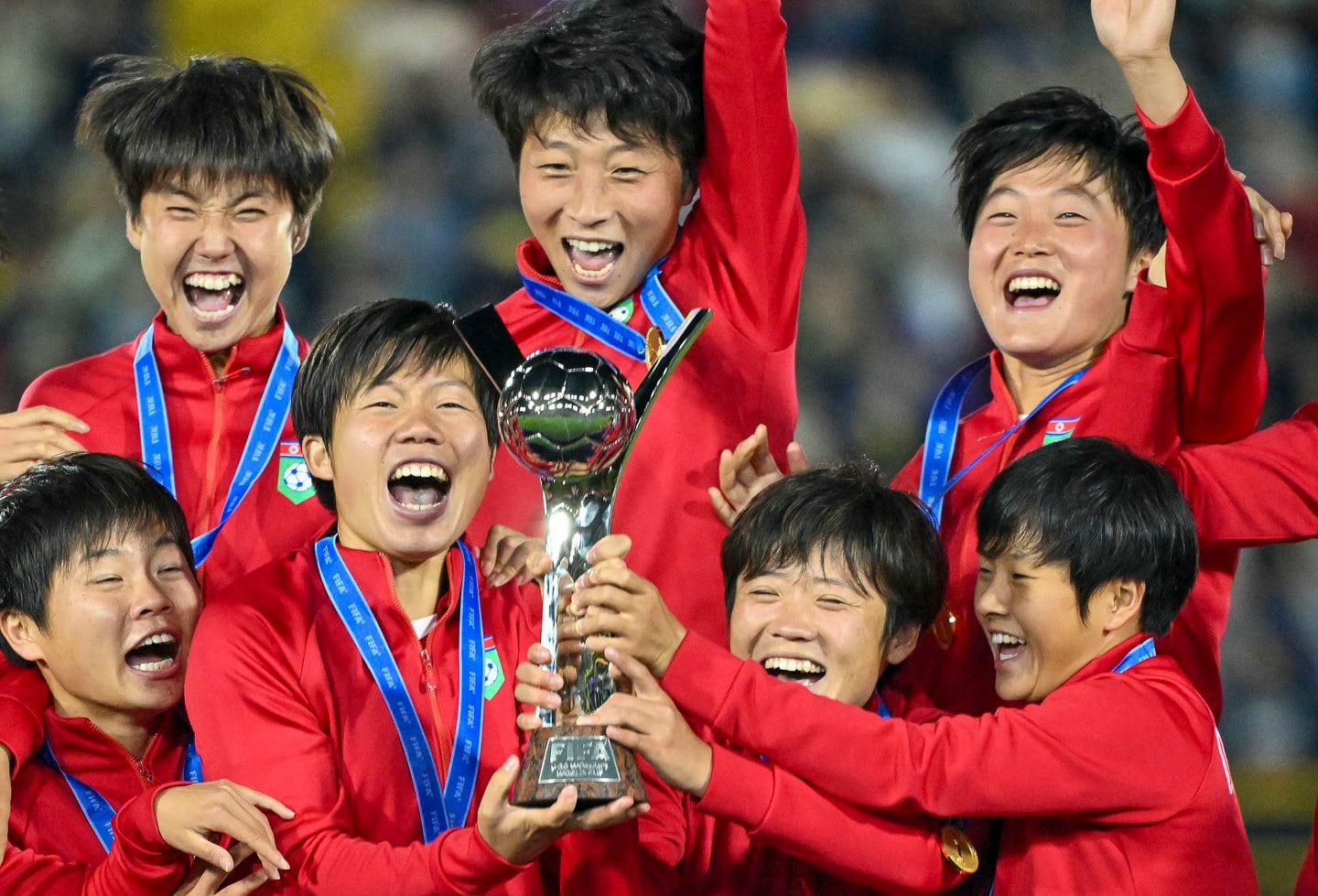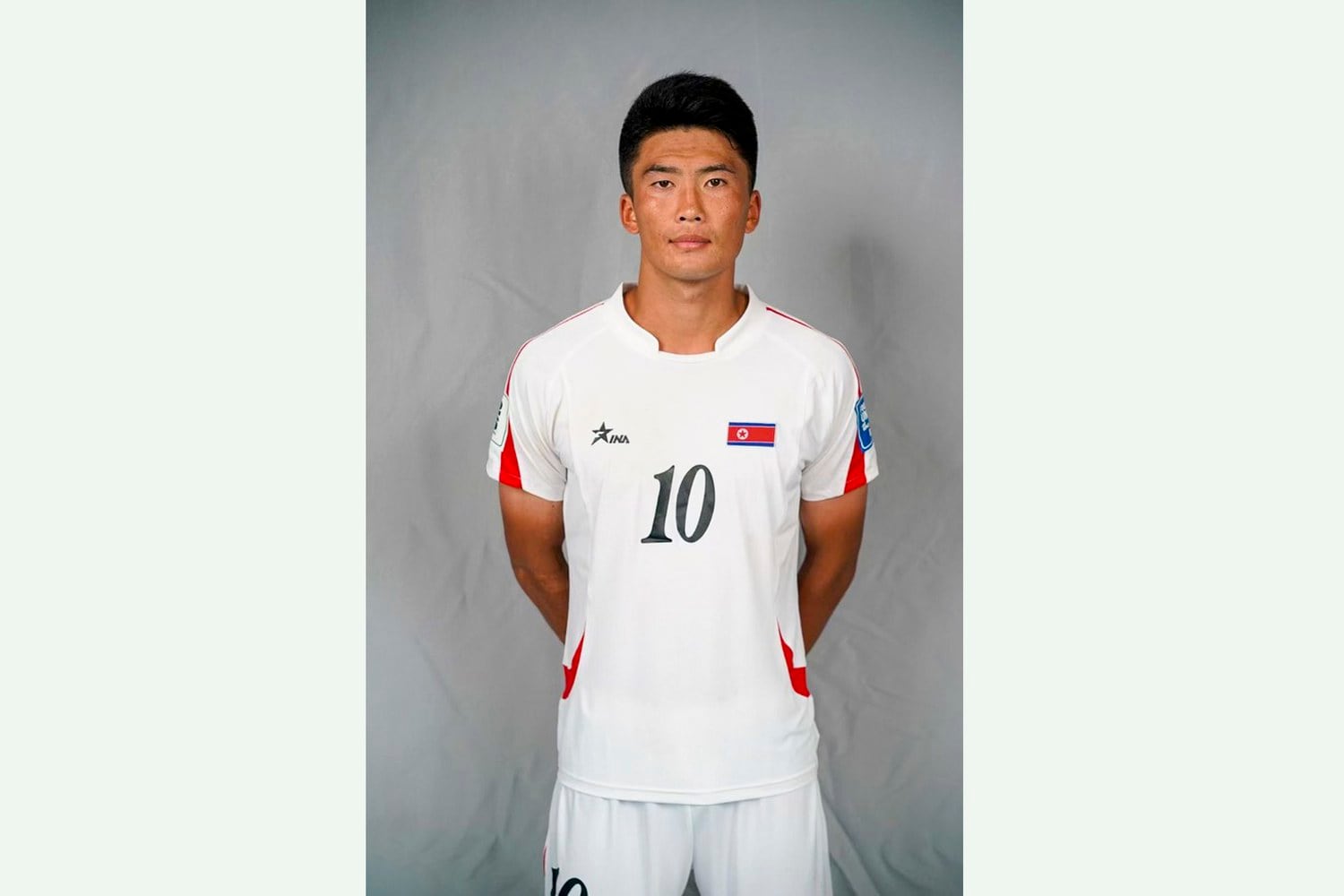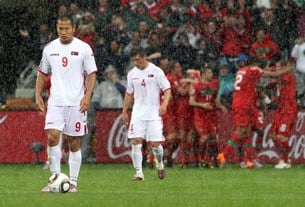North Korean women’s soccer has enjoyed an unprecedented year of success and the government recently allowed outside news media rare access into its training program, a move likely intended to boost its international profile.
In 2024, its national women’s teams surprised the global soccer community by winning both the FIFA under-17 and under-20 women’s World Cups.
Unlike their male counterparts, who haven’t prospered on the international stage since qualifying for the 1966 World Cup quarterfinals, the women’s team have fared much better, qualifying for the Women’s World Cup four times and reaching the quarterfinals in 2007.
Offering a rare glimpse into their training regimen and communist North Korea’s cloistered elite sports infrastructure, SNTV -- a global sports video agency jointly operated by The Associated Press and IMG – released a report this week including interviews with players and coaches and footage of training sessions.
It featured players from the elite Amnokgang Sports Club, including core members of the national team, such as Jeon Il-cheong, who was named most valuable player at the 2024 FIFA U-17 Women’s World Cup. She expressed determination to build on their success.
“What we achieved last year is only the beginning,” Jeon told SNTV. “We will not rest. We are running hard on the training ground to win future international competitions.”
Much of the soccer talent originates from the Pyongyang International Football School, an elite youth development facility that combines academic education with intensive athletic training. According to school director Kim Gwang-chol, the school admits students with both academic aptitude and athletic potential from across the country.
“We provide a dual education system that includes general secondary education and specialized football training,” Kim told SNTV.
Graduates of the school often go on to play for top-tier domestic clubs like Amnokgang and April 25 Sports Club, eventually feeding into the national team.
But experts believe there’s more than simple pride in North Korea’s success on the soccer pitch behind the sudden display of openness to outside media.
Lee Hyun-seung, who defected from North Korea in 2014 and is now senior strategy adviser on North Korea at the U.S.-based Global Peace Foundation, told Radio Free Asia that the move is likely part of a broader propaganda strategy.
“North Korea can’t keep relying on outdated 1980s and 1990s strict propaganda tactics forever,” said Lee. “The regime’s propaganda arm seems to be shifting its strategy - using international achievements to promote the superiority of the North Korean system to the outside world.”
He added that internally, this success is also framed in ideological terms: as the result of the “grace and care” of the supreme leader, Kim Jong Un.

Cho Han-bum, a senior research fellow at the Seoul-based Korea Institute for National Unification, told South Korea’s Segye Ilbo that North Korea was using sporting achievements to “consolidate the system, as it faces economic difficulties and lacks other accomplishments to promote.”
Jean Lee, presidential chair at the U.S.-based think tank, the East-West Center, said the SNTV footage provides an interesting glimpse into the “sports regimen and machinery in North Korea” and hints that North Korea is ready to start opening up.
“This type of propaganda is meant to inspire as well as show off an industry - sports - that the North Koreans are immensely proud of and invest quite a bit in. Sports are a relatively low-cost way to generate international recognition, and sporting competitions are one arena where North Koreans are welcome abroad,” said Lee, former Seoul and Pyongyang bureau chief for The Associated Press.
But she added that watching the video also gives a sense of the kind of pressure that the young women soccer players are under.
“They train from a young age to serve their country as athletes. They are truly talented, and it’s heartwarming to see their dedication, but I can’t help but also feel that the pressure to excel is immense,” she told RFA.
Edited by Mat Pennington.



